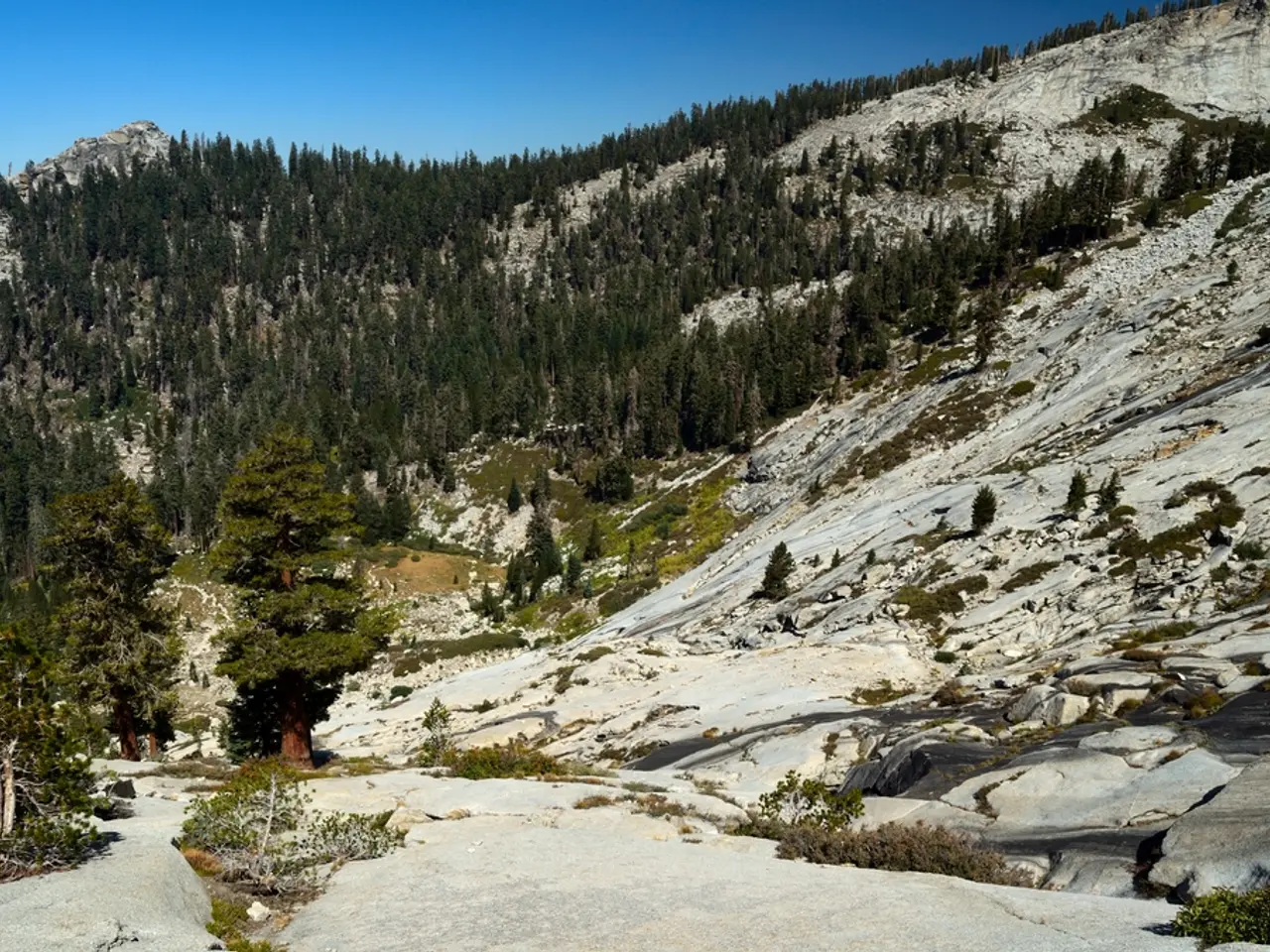Avalanches of rocks continue to alarm residents, walkers, and climbers in a small settlement
In the heart of the Alps, a series of dramatic events have been unfolding, as hiking trails, paths, and huts in various locations face daily climate stress. This stress is manifesting in the form of landslides, rockslides, and avalanches, causing disruption and danger for both locals and tourists.
One of the most significant closures is the Silvretta High Alpine Road, which is expected to remain shut until 2026. The closure is the result of approximately 120,000 truckloads of rock, a staggering amount that underscores the scale of the problem. This is not an isolated incident, as other roads in the region have also been affected by similar landslides and rockslides.
In the Allgäu Alps, a crack runs through the Hochvogl mountain, threatening to break apart and crash into the Hornbachtal. Meanwhile, heavy rainfall in June has accelerated the movement of rock masses in Brienz, Switzerland, posing a threat of a new, massive rockslide.
The cost of these natural disasters is not just in terms of infrastructure. In May of this year, a rockslide in the Swiss Lötschental village of Blatten caused damage and flooding, forcing the evacuation of homes and the tragic death of one resident. However, around 300 residents were rescued in time.
The main causes for these increasing rockfalls in the Alps in recent years are primarily linked to climate change effects. Warming temperatures lead to permafrost thawing, which destabilizes rock by removing the natural "glue" that holds it together, making it more prone to falling. Water penetrating rock cracks and freezing causes further rock breakage, and accelerated glacier melt adds to these instability processes.
These events have had a profound impact on local communities. In Brienz, fear of a potential rockslide persists, and many residents have expressed a desire to leave the village. Similarly, the recent rockslide in the Brenta Group of the Dolomites in Trentino, Italy, forced the rescue of 100 hikers and mountaineers and the closure of hiking trails and climbing routes for safety reasons.
Germany has also been affected, with a landslide in the Wimbach valley in the Berchtesgaden National Park destroying a popular trail in August 2024, requiring 20 people to be rescued. The DAV warns that the Watzmann round in Germany cannot be completed due to a rockslide risk.
Despite these challenges, efforts are being made to contain and protect against rockfall. Measures on the Silvretta High Alpine Road cannot guarantee the complete elimination of the danger, but they aim to minimise it. The road over the Pleckenpass was reopened in April 2024 after a rockslide in 2023, at a cost of 20 million euros.
As the Alps face these challenges, the future remains uncertain. However, one thing is clear: the effects of climate change are being felt in the most dramatic and unexpected ways, and the Alps are no exception.
Read also:
- Nightly sweat episodes linked to GERD: Crucial insights explained
- Antitussives: List of Examples, Functions, Adverse Reactions, and Additional Details
- Asthma Diagnosis: Exploring FeNO Tests and Related Treatments
- Unfortunate Financial Disarray for a Family from California After an Expensive Emergency Room Visit with Their Burned Infant








